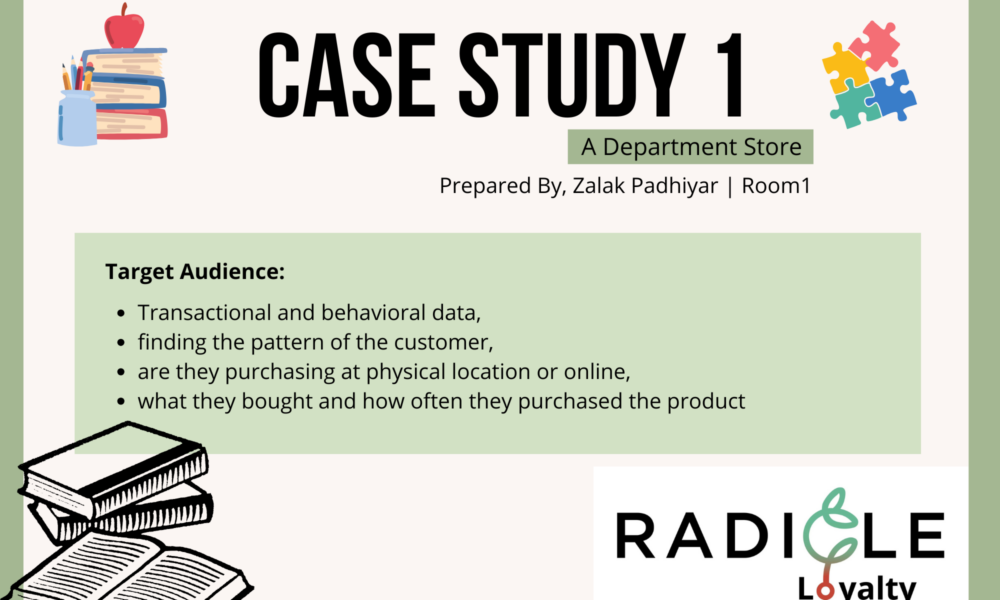Have you ever felt like a brand just gets you? Like it knows exactly what you need, when you need it, without being invasive? That feeling of being seen isn’t magic—it’s the power of data, when used right.
Lately, I’ve been diving deep into the world of digital marketing—chasing a dream to become a Digital Marketing Specialist. One of the most eye-opening courses I’m taking at college is Digital Media Marketing Seminar Series with Wendy Greenwood. What makes this course so special is its format: each week, we hear directly from industry experts who walk the talk.
Last week, we had the pleasure of learning from Lia Grimberg, Principal at Radicle Loyalty, and a powerhouse in customer loyalty and data-driven marketing. Her session made me rethink how data, when handled with care and creativity, can build lasting trust between brands and consumers.
Here are the insights that really stayed with me—and how they’ve reshaped the way I see my future in marketing.
1. “Data = Trust. Don’t Lose the Trust.”
That’s the quote Lia opened with, and it stuck with me. She explained how good personalization can make customers feel understood—but the moment it goes too far, it starts to feel invasive. I immediately thought of two contrasting experiences I’ve had as a customer.
One was with The Face Shop, a skincare brand I’d only shopped from once. Months later, they sent me a personalized offer that matched my skin type and past purchase. It was subtle, relevant, and surprisingly thoughtful. I felt remembered—not monitored.
Then there was Amazon. After browsing for something random, I started getting ads and emails for it everywhere. It wasn’t helpful—it was unsettling. Lia’s point hit home: personalization should feel like a service, not surveillance.
2. Loyalty Isn’t Just About Points—It’s About Relevance
Lia broke down the 4 R’s of Loyalty: Recognition, Reward, Relationship, and Relevance. It was relevance that resonated most with me. I used to think it just meant recommending products based on past purchases. But Lia showed us how relevance is also about timing, context, and being adaptive.
She gave the example of brands using real-time data—like weather, location, or recent behaviors—to tweak their messaging dynamically. I hadn’t realized just how nuanced and fluid relevance can be. It’s not a set-it-and-forget-it strategy; it’s a living, breathing dialogue with the customer.
3. The Loyalty Program Case Study: Our Learning Moment
In class, we worked on a case study to revamp a department store’s loyalty program. Our group proposed using behavioral data to personalize offers—like suggesting refills or complementary products based on past purchases.
Lia appreciated our data-driven approach but gave us one crucial piece of feedback: get specific with your audience. Instead of targeting everyone, we should’ve focused on a niche group—like one-time buyers who need a reason to return.
That was an “aha” moment for me. Data is powerful, but only when it’s applied with purpose. Targeting a well-defined customer segment is what turns a good strategy into a great one.
4. Storytelling with Data: A Skill I Want to Master
Lia reminded us that “data is the new oil.” But raw oil needs refining—and in marketing, that means turning numbers into narratives. I’m comfortable analyzing data and spotting trends, but I realized I still have room to grow when it comes to data storytelling.
The idea of blending analytics with empathy to create marketing that feels personal, timely, and meaningful? That’s the kind of work I want to do. I want to help brands connect with people in ways that build loyalty, not just transactions.
Lia Grimberg’s guest lecture wasn’t just a class—it was a glimpse into the kind of marketer I aspire to be. One who uses data not just to sell, but to serve. One who builds loyalty through relevance, trust, and authenticity.
As I continue on this journey, I’ll carry these lessons with me—knowing that the future of marketing isn’t just about targeting the right customer, but about treating them right.

